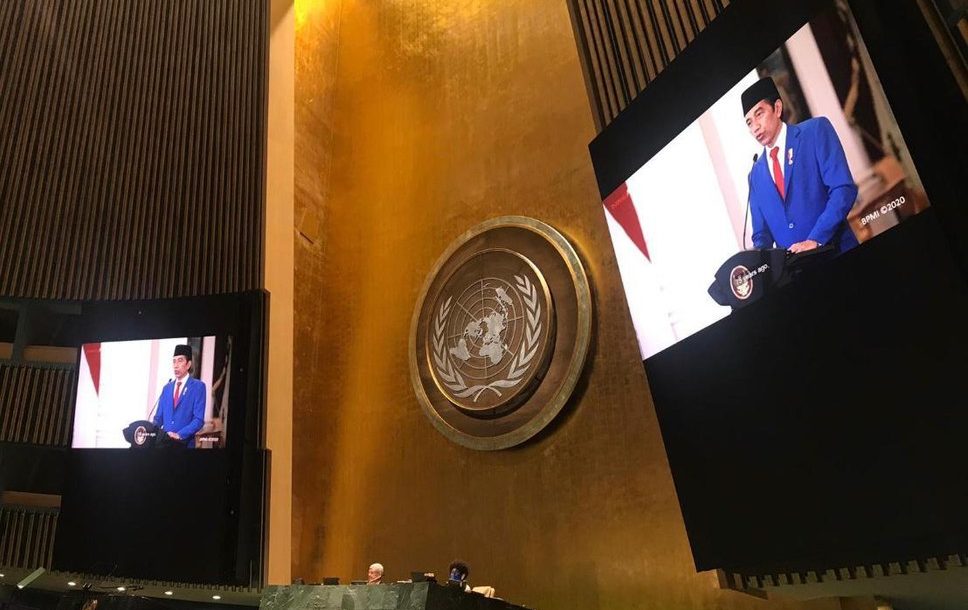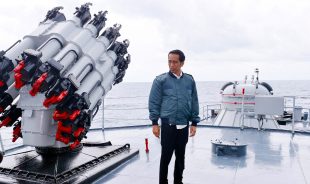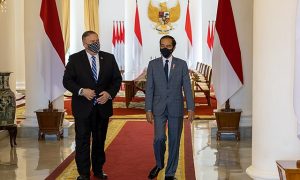As the great power rivalry intensifies, many pundits have already indicated that preserving autonomy is wishful thinking for a middle power such as Indonesia. But while the room for hedging has undoubtedly shrunk, Indonesia will continue to find ways to preserve a significant measure of its strategic autonomy. On September 2, 1948, when Mohammad Hatta, Indonesia’s first vice president, uttered the phrase mendayung diantara dua karang (translated as navigating or rowing between two reefs), the fear of having to succumb to another period of subjugation was just a bitter fruit that they were not willing to swallow.
The fear of a loss of agency is alive and well in Indonesia’s modern collective unconscious as a post-colonial state. But as Leonard Sebastian and I noted in our essay: “remembrance of things past is not necessarily a preference for historical precedence. This is not the basis of a “free and active” (bebas aktif) foreign policy strategy”. My referencing Proust’s À la recherche du temps perdu (In Search of Lost Time) carries the subtext of the fluidity of memory: there are things that we remember, but there are things that we remember well.
The word “mendayung” or “navigate” evokes a textural imagination of the struggle for independence, and Indonesians remember that “navigate” is the essence of our bebas aktif foreign policy doctrine. Mendayung precludes alignment. As Hatta posited: “Do we, Indonesians, in the struggle for the freedom of our people and our country, only have to choose between Russia and America?”
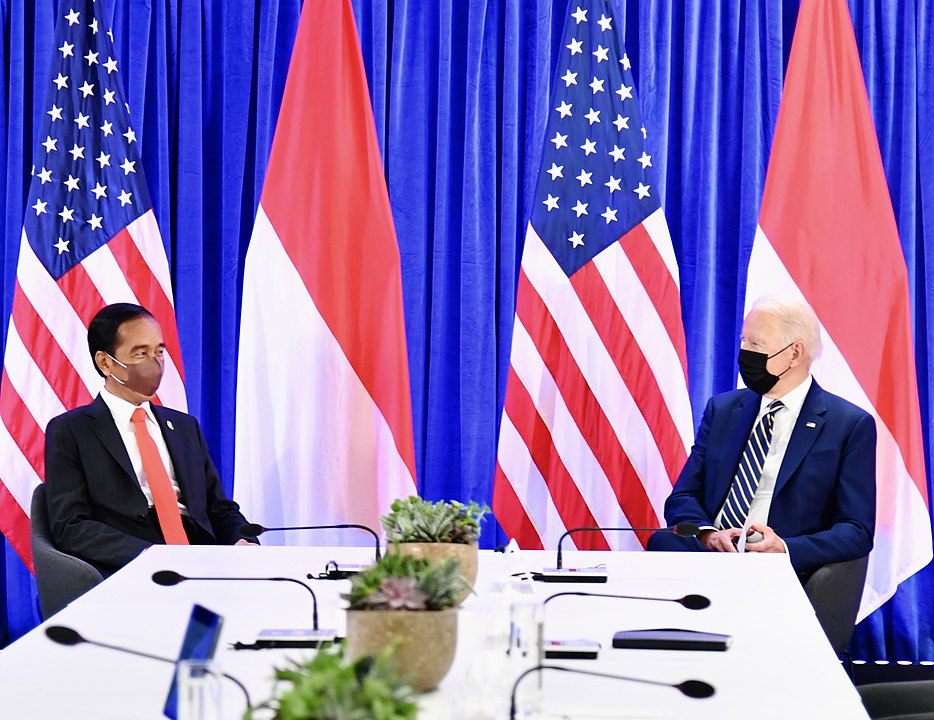
President Joko Widodo in a bilateral meeting with the President of the United States, Joe Biden at COP26 in 2021. (Public domain)
What we remember well is that to “navigate” is about playing two superpowers off against each other; this is what Indonesia culturally regards as jalan tengah, translated as the middle way.
What is jalan tengah, and why should we care?
Jalan tengah is not a middle position. It is about taking risks. When Indonesia withdrew from the UN in 1965, it rejected Kissinger’s attempts to persuade Jakarta to normalise its relationship with Beijing following the US-China rapprochement in 1972, and organised military exercises in the Natunas in 1996, 2016, 2020, and 2021 against one of its biggest investors––China. These are not risk averse attitudes.
Jalan tengah refers to a constant searching for a new equilibrium, conjuring the cultural imagery of a Pinisi ship as it navigates the ocean. The goal is twofold: to preserve strategic autonomy and to exploit a great power rivalry to its advantage. Such underlying principles perhaps inspired former Foreign Minister Marty Natalegawa’s “dynamic equilibrium.” Natalegawa’s postulation was a modern reinterpretation of jalan tengah, magnifying the aspect of preserving Indonesia’s voice in regional matters. As Natalegawa’s jargon was abandoned during Joko Widodo’s administration, the underlying principle of jalan tengah continues to be prominent but reinterpreted.
As the inherently unstable multipolarity comes of age, jalan tengah teaches two lessons about Indonesia–––one of policy and another of identity.
Public opinion and civil society: shaping Indonesia’s South China Sea Policy?
Public opinion should force the Indonesian government to consider and adjust its policies and responses to China in the South China Sea.
Jalan tengah makes Indonesia’s concept of strategic autonomy pliable. Under the Jokowi presidency, Indonesia has been willing to sacrifice some degree of autonomy by accepting Chinese investments for the sake of economic development. There are two revealing examples. First, Jakarta started to design (in some instances) an unfair bidding process for investments that only China could access. Second, violating its own domestic law that forbids foreign investors from owning shares totalling greater than 49 per cent, Jakarta made an exception for a consortium of Chinese companies, Shanghai Decent Investment (Group) Co., Ltd., to own 66.25 per cent of the shares in Indonesia’s Morowali Industrial Park (IMIP). (IMIP is the biggest cluster of Chinese investments in Indonesia to date.)
The two examples are not a sign of China’s success in buying Indonesia’s acquiescence. In fact, Beijing has accepted many conditions imposed by Jakarta, such as the elimination of sovereign guarantees in some high-profile investments (e.g., Jakarta-Bandung High Speed Rail). Moreover, Jakarta continues to contest the legality of China’s traditional fishing ground claim in the Natunas.
Indonesia’s decision to gamble with a degree of its strategic autonomy should thus be regarded as the latest reinterpretation of what jalan tengah entails. The gambit of compromising autonomy is also a tactic to entice the U.S. to start paying attention to Indonesia. This has borne fruit. Washington has acknowledged Indonesia’s renaming of the far southern end of the South China Sea as the North Natuna Sea. The US’ acknowledgement serves to contest China’s influence in Indonesia. Gifts from the two superpowers are the desired middle way.
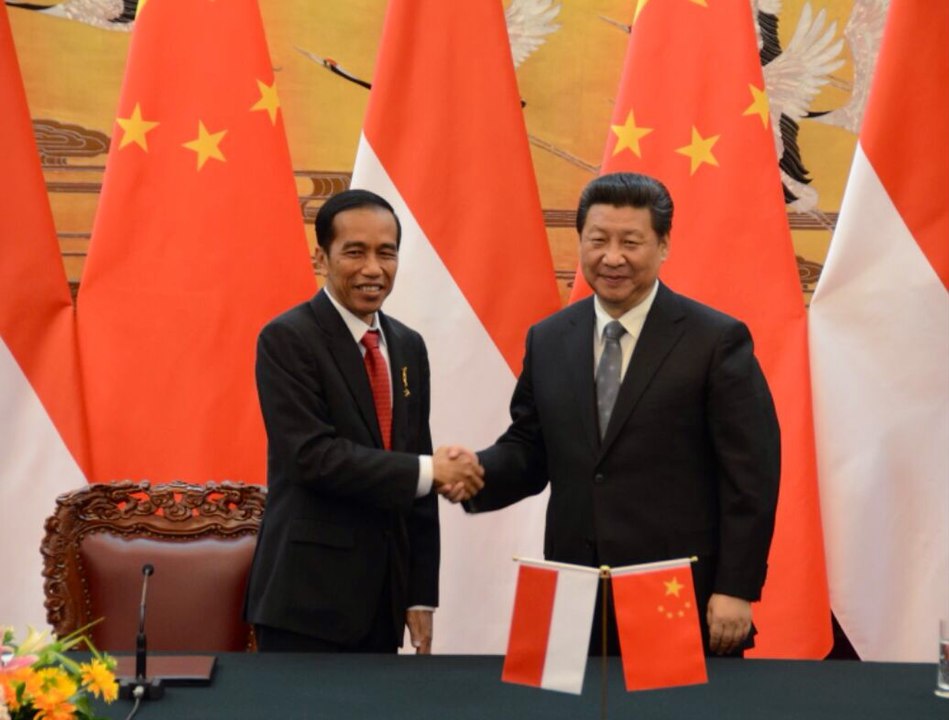
Joko Widodo meeting Xi Jinping, March 2015. (Public domain)
The Loftusian idea––“memory is a living thing that changes shape, expands, shrinks, and expands again”––illustrates the way in which the Indonesian elite interacts with the concept of jalan tengah. This time, Indonesia blurs its remembrance of non-alignment and bends its strategic autonomy like a coconut tree. This is the twenty first century reinterpretation on how Indonesia exercises the “free” element in its post-colonial foreign policy.
The other significance of jalan tengah is ontological. It brings to mind Indonesia’s embrace of duality, like a wayang kulit (shadow puppet) that embodies both ascetic and cunning quality. In Hatta’s 1951 address, he noted that “As a nation which has struggled against imperialism and colonialism for many a decade, we have the highest ideals concerning the fundamental principles of life. We want to see our nation live in prosperity and well-being, free from want”. Hatta then ventured on to explain how Indonesia’s economy should contain elements of socialism and capitalism (a blend known as koperasi or a cooperative), a system that prevails to date. Embracing duality perhaps partly explains why it is difficult for Indonesia to let go of its authoritarian tendency for control despite being a democratic and decentralised state. Similarly, in navigating the great power rivalry, jalan tengah is a balancing act, not against the US or China, but over its own conviction: the extent to which Indonesia is willing to compromise its strategic autonomy.
 Facebook
Facebook  Twitter
Twitter  Soundcloud
Soundcloud  Youtube
Youtube  Rss
Rss 